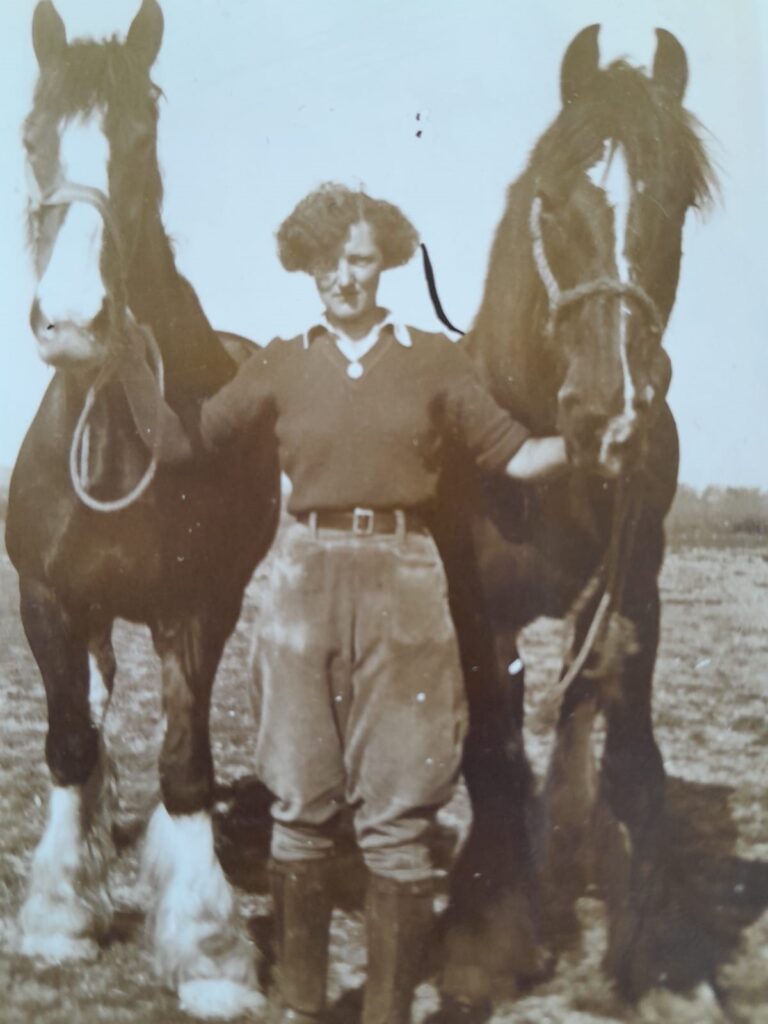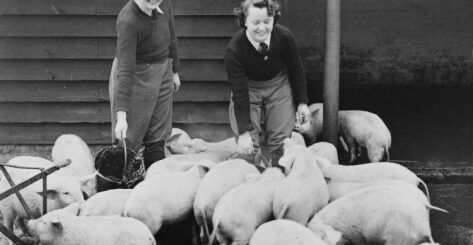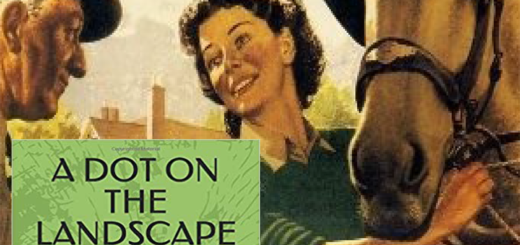VE Day plaque honours WLA and WTC

Credit: Defra.
Thousands of women who kept Britain fed during the Second World War have been honoured with a new commemorative plaque to mark the 80th anniversary of VE Day.
Unveiled by Farming Minister Daniel Zeichner at Department for Environment, Food and Rural Affairs office, 2 Marsham Street in London, the plaque recognises the critical contribution of the Women’s Land Army and Women’s Timber Corps to Britain’s war effort and food security during 1939-45.
Despite their crucial civilian service, members of both organisations were not granted military status or medals at the war’s end, leaving their contributions unrecognised for decades.
Following a successful campaign, the Labour government introduced a commemorative medal scheme in 2007 to honour surviving members. The response was overwhelming, with over 29,000 applications received from across the UK and as far away as Canada, Australia and the United States.
Credit: Defra.
Farming Minister Daniel Zeichner said:
“It is an honour to see this plaque unveiled in tribute to the women whose dedication and resilience helped feed and supply a nation during some of its darkest hours.
“These women stepped up when the country needed them most, working the land to keep Britain’s food and timber supplies. For too long their service went unrecognised, but justly – under the last Labour government – they finally received the acknowledgment they deserved.
“Their legacy lives on in the countless women who continue to shape and sustain our agricultural sector today. As we remember their sacrifice, we also look to a future where the role of women in farming and food production is not only acknowledged – but championed.”
Clare Whittaker, granddaughter of Eilene Redding of the Women’s Land Army said:
“I’m so proud of my grandmother. She left everything she knew to live on a farm and do a job she’d never done before, so the country had the food it needed, when it needed it most. I can’t begin to imagine what that was like and I’m so pleased her role and the role of women like her, is being remembered on the 80th anniversary of VE Day.”
The new plaque serves as a permanent national reminder of these women’s vital wartime service, ensuring their legacy continues to be recognised alongside VE Day commemorations.
Dr Cherish Watton-Colbrook, Women’s Land Army historian said:
“As we mark the 80th Anniversary of VE Day, this plaque recognises the vital work carried out by members of the Women’s Land Army and the Women’s Timber Corps during the two world wars.
“From June 1939 to November 1950, over 200,000 Land Girls and Lumber Jills worked in all weathers, dedicating themselves to increasing much-needed supplies of food and timber. On this special anniversary, this plaque commemorates the vital contributions which these civilian women made to the war effort.”
Credit: Doris Youde (née Stanyon)
Joanna Foat, author of Lumberjills Britian’s Forgotten Army and UK expert on the Women’s Timber Corps, said:
“More than 15,000 young women served in the Women’s Timber Corps in World War Two. They left factories, domestic service and hair salons to step forward for the war effort, like their brothers; felling trees, driving timber haulage trucks, operating sawmills and calculating figures that the government needed for wartime timber supplies. This was demanding, hazardous work. Mary Broadhead cut off her thumb in the sawmill, Edna Holland’s friend broke her back when the tractor overturned and Ethel Torbet lost her life–crushed by a falling tree.
“They worked through snow, mud and exhaustion to provide the timber that built aircraft, the floating mulberry harbours, D-day landing trackway, repaired bombed cities and fuelled the war machine with milllions of tonnes of pit props for coal mines. Great Britain consumed almost half, 46%, of Britain’s forests and woodlands during World War Two, producing 18 million tonnes of timber. The Lumberjills, as they were affectionately known, were vital to the architecture of war and Victory in Europe. But for over 60 years, they went unrecognised.
“As we celebrate the incredible courage and determination of the Lumberjills, VE Day 80 is a reminder that we must not cast aside the great endeavours of women, minority groups or take for granted the sacrifices made by the natural world. My hope is that the legacy of the Lumberjills lives on.”
The application process for surviving members to receive commemorative badges continues to be managed by the Department for Environment, Food & Rural Affairs. For further information, visit GOV.UK.
Memoir extract from the memoir of Eilene Redding, shared by Clare Whittaker
The war came between England and Germany in 1939. I was working in London at a Jewish Warehouse in Houseditch near Middlesex St. better known as Petticoat Lane.
As war progressed more and more, people were conscripted into arms factories. I felt this was not for me if there was anything different I could do. So I made a decision that I never regretted and volunteered for the Women’s Land Army.
Fitted out with my kit I arrived in early Summer with another girl Ivy. Ivy and I lodged at a bungalow on the farm with one of the farmers and his wife.
Our first job on the farm was hop training. It was very quiet and peaceful in the hop gardens with only sounds of birds singing. The hops have to be trained three times so by the time you finished the garden, you started all over again.
We learned to milk cows by hand and groom and harness the two horses, Tom and Spider and all the other jobs on the farm, including corn threshing. We often worked late into the evenings during the Summer, especially haymaking and harvest time. Although the work was hard and we were out in all weathers, we enjoyed the life and felt we were doing our bit for our country.
